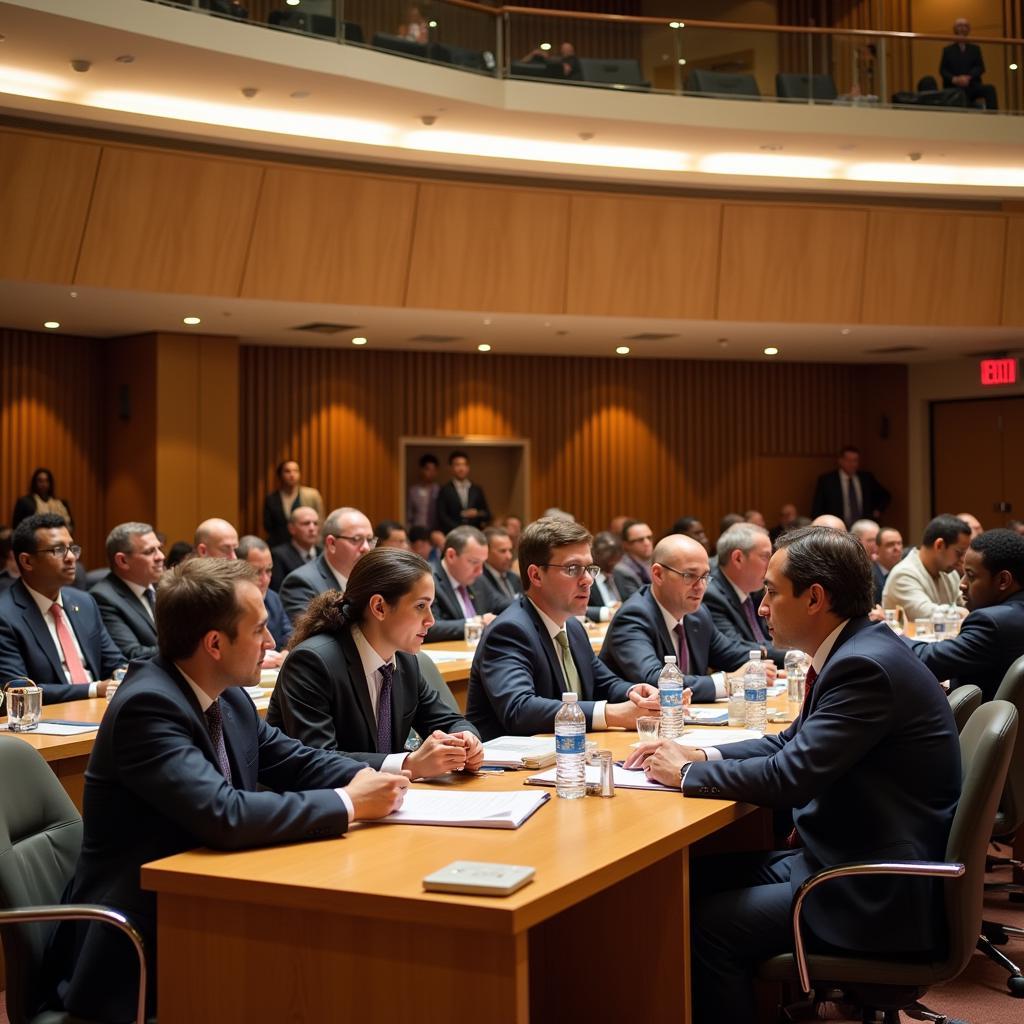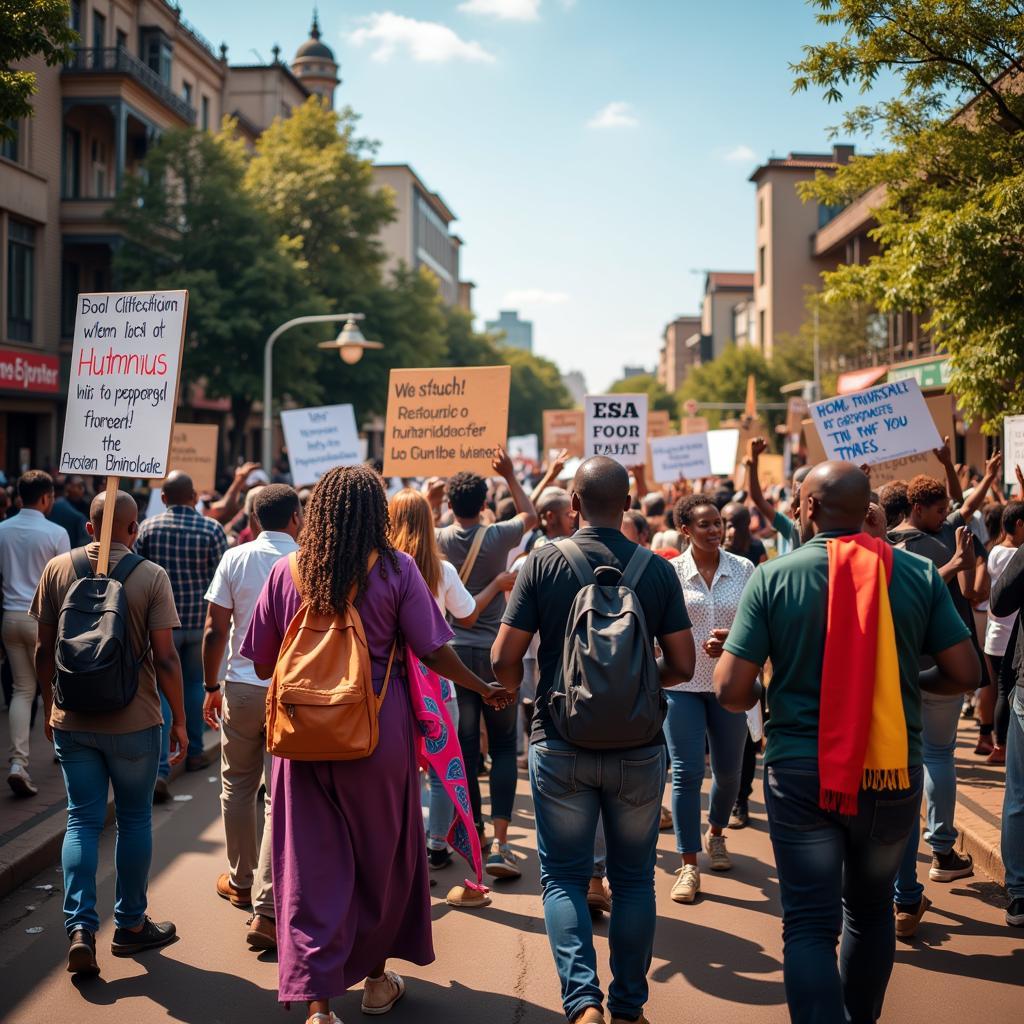African Charter on Human and Peoples’ Rights Signatories: A Comprehensive Guide
The African Charter on Human and Peoples’ Rights signatories represent a powerful commitment to upholding fundamental freedoms across the African continent. This Charter, adopted in 1981, stands as a testament to the shared values of African nations and their dedication to promoting and protecting the inherent dignity of every individual.
Understanding the African Charter on Human and Peoples’ Rights
The African Charter on Human and Peoples’ Rights, also known as the Banjul Charter, is a human rights treaty that outlines a broad range of civil, political, economic, social, and cultural rights for all people within the African Union. The Charter sets forth the obligations of states to respect, protect, and fulfill these rights.
Who are the African Charter on Human and Peoples’ Rights Signatories?
Every member state of the African Union has signed the African Charter, signifying their intent to uphold its principles.
Key Provisions of the African Charter
The African Charter covers a wide range of human rights, including:
- Right to life and integrity: Protecting individuals from arbitrary deprivation of life and torture.
- Freedom from slavery and forced labor: Prohibiting all forms of slavery, servitude, and forced labor.
- Right to liberty and security of person: Guaranteeing freedom from arbitrary arrest, detention, and exile.
- Right to a fair trial: Ensuring access to justice through fair and impartial legal proceedings.
- Freedom of expression and information: Protecting the right to hold opinions and express them freely.
- Freedom of association and assembly: Recognizing the right to form and join associations, including political parties and trade unions.
- Right to education: Guaranteeing access to quality education at all levels.
- Right to health: Ensuring access to healthcare services and promoting the highest attainable standard of physical and mental health.
The Role of the African Commission on Human and Peoples’ Rights
The African Commission on Human and Peoples’ Rights, established under the Charter, plays a crucial role in monitoring the implementation of the Charter’s provisions by state parties. The Commission receives and investigates complaints of human rights violations, undertakes promotional activities to enhance human rights awareness, and provides advisory opinions on human rights matters.
 African Commission on Human and Peoples' Rights Meeting
African Commission on Human and Peoples' Rights Meeting
Challenges and Progress
Despite the widespread adoption of the African Charter, challenges persist in its full implementation. Poverty, conflict, discrimination, and corruption continue to pose significant obstacles to the realization of human rights for many people on the continent.
However, the African Charter has also served as a catalyst for positive change. It has contributed to the development of human rights jurisprudence in Africa, strengthened civil society organizations, and fostered a culture of human rights awareness.
Conclusion
The African Charter on Human and Peoples’ Rights represents a landmark achievement in the pursuit of human rights on the African continent. While challenges remain, the commitment of African Charter signatories to uphold the principles of the Charter offers hope for a future where all individuals can live in dignity and freedom.
FAQs
1. What is the significance of the African Charter on Human and Peoples’ Rights?
The African Charter is significant because it establishes a framework for protecting and promoting human rights within the specific context of Africa, recognizing the unique cultural and historical factors at play.
2. How does the African Charter address the rights of women?
The African Charter specifically prohibits discrimination based on gender and calls for the elimination of harmful practices against women, including female genital mutilation.
3. How can individuals seek redress for human rights violations under the African Charter?
Individuals and NGOs can submit complaints of human rights violations to the African Commission on Human and Peoples’ Rights for investigation.
4. How has the African Charter influenced other regional human rights instruments?
The African Charter has served as a model for other regional human rights instruments, particularly in its emphasis on collective rights and its recognition of the interconnectedness of human rights.
5. What are some key challenges to the full implementation of the African Charter?
Challenges to implementation include limited resources, weak governance structures, armed conflict, and cultural practices that contradict the Charter’s principles.
 Advocating for Human Rights in Africa
Advocating for Human Rights in Africa
For further assistance or information regarding the African Charter on Human and People’s Rights, please contact us:
Phone Number: +255768904061
Email: kaka.mag@gmail.com
Address: Mbarali DC Mawindi, Kangaga, Tanzania.
Our dedicated customer service team is available 24/7 to assist you.


